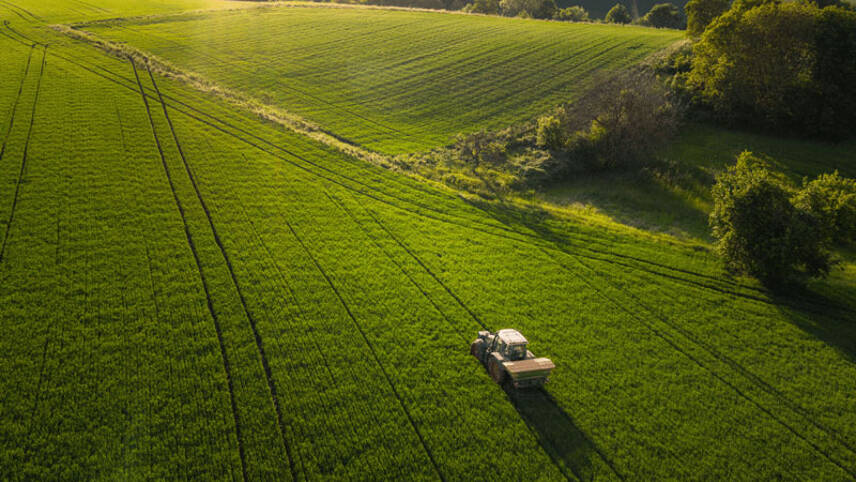Register for free and continue reading
Join our growing army of changemakers and get unlimited access to our premium content

Image: PepsiCo UK
The food and beverage giant this week announced the projects it will fund through its Positive Agriculture Outcomes Accelerator, which provides local farmers with funding and connections to agriculture tech start-ups.
For this year – the third iteration of the annual Accelerator – PepsiCo has selected projects on farms in Australia, the UK, Colombia, Egypt, India, Iraq, Pakistan, Poland and Romania.
In Europe, PepsiCo will support farmers to work with 3Keel to adopt regenerative agriculture practices on their land. Farmers will also be connected to other Europe-based organisations with expertise in deploying regenerative practices and tracking their impact.
3Keel’s director Tom Curtis said: “”Support from PepsiCo’s Accelerator will powerfully enable our team to work with local farmers across Europe to further broker the partnerships needed to accelerate climate action on the ground to strengthen agricultural supply chains for the long-term.”
Regenerative agriculture is also the focus in Australia and Colombia. In Colombia, studies will be undertaken to assess how cover crops can decrease soil erosion, improve soil fertility and deliver other positive sustainability benefits.
Cover cropping is a practice whereby plants other than those typically grown on the farm for commercial sale are strategically co-located.
In Australia, meanwhile, PepsiCo will test and validate changes to practices that should enhance soil quality while reducing emissions and either maintaining or improving yield.
Efficiency drive
Another key focus area for multiple Accelerator projects is efficiency.
In India, PepsiCo will support efforts to develop a blueprint for the adoption of precision fertilising. Fertiliser prices are currently very high due to the Russia-Ukraine war disrupting exports. Moreover, by reducing artificial fertiliser use, farms stand to reduce greenhouse gas emissions and damage to soils.
In Iraq, researchers will be supported to map current and future water-related risks. This will inform the development of a risk management roadmap for potato farmers through to 2030. Iraq is currently facing its worst water crisis in at least 100 years that is expected to persist for years to come.
Also on the topic of water efficiency, water-efficient low-pressure sprinkler irrigation systems will be trialled in Colombia.
“We can’t motivate systemic change on our own, and our Positive Agriculture Outcomes Accelerator continues to provide a forum for farming communities to bring forth ideas and opportunities, and receive the funding needed to get promising innovation off the ground,” said PepsiCo’s VP for sustainable and regenerative agriculture Margaret Henry. “With this latest round of projects, we’re not only fostering this powerful network of innovators across global farmland, but growing closer to achieving a more regenerative future, with farmers’ insight at the forefront.”
The news comes after PepsiCo partnered with Walmart earlier this year on a seven-year workstream to accelerate the uptake of regenerative agricultural practices on farmland in North America.
As regenerative agriculture becomes more of a focus for large multinational food businesses, organisations including investor network FAIRR are calling for more standardised and ambitious target-setting and more robust and transparent reporting of progress.


Please login or Register to leave a comment.